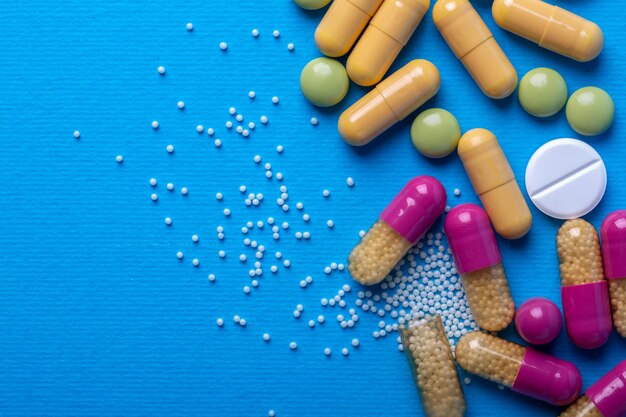Human Growth Hormone (HGH) is a natural peptide hormone produced by the pituitary gland, playing a key role in growth and cell regeneration. However, HGH production decreases with age, prompting interest in synthetic HGH to counteract aging effects such as reduced muscle mass and increased body fat. While synthetic HGH is available by prescription for certain conditions, its anti-aging use is not FDA-approved.
Despite regulations, HGH supplements have grown in popularity due to their claimed benefits like enhanced athletic performance and anti-aging. These supplements typically don’t contain actual hormones but substances aimed at boosting the body’s natural HGH production.
HGH is essential for growth, cell reproduction, and regeneration. It helps maintain healthy tissues, including vital organs like the brain. Besides physical growth and cellular health, HGH influences metabolic processes, aiding in fat and protein breakdown while promoting muscle growth. It also regulates body fluids and sugar levels, contributing to bone density. HGH deficiency can cause health issues such as stunted growth in children and increased risk of heart disease or osteoporosis in adults.
As we age, HGH production naturally declines, leading to signs of aging like wrinkles, decreased muscle mass, increased body fat, and slower metabolism. HGH is crucial for cell repair and maintaining healthy tissues. Supplementation can help those with deficiencies by stimulating natural HGH production.
HGH supplements usually contain ingredients that stimulate natural HGH production. These often include amino acids like L-Arginine, L-Glutamine, and L-Lysine, which are scientifically proven to boost HGH levels. Other common ingredients include GABA for neurotransmission, Pituitary powder to enhance pituitary gland function, and Phosphatidyl Choline for nutrient absorption. It’s important to research each component’s role and consult professionals before choosing a supplement.
HGH supplements work by stimulating the body’s natural HGH production, using amino acids, vitamins, and nutrients. These ingredients help the pituitary gland produce more growth hormone. While these supplements don’t introduce synthetic HGH, their effectiveness depends on individual factors like age, genetics, and health status.
HGH supplements are associated with several benefits such as improved muscle mass and strength, better bone health due to increased density, and enhanced metabolic functions aiding weight management. They may also improve heart health by strengthening cardiovascular muscles and lowering bad cholesterol.
Potential side effects of HGH supplements can include joint pain, muscle aches, and swelling due to fluid retention. More severe issues like carpal tunnel syndrome, insulin resistance, diabetes, abnormal bone growth, and organ enlargement can occur with excessive use.
Healthcare professionals have differing views on HGH supplements. Some support their use for health conditions under medical supervision, citing benefits like improved muscle mass and bone density. However, others caution against widespread use due to potential side effects and the lack of conclusive long-term safety evidence.
Consumer experiences with HGH supplements vary. Many report benefits like increased energy, improved physical performance, and better skin elasticity. However, others see minimal effects or adverse reactions such as joint pain and swelling.
The FDA regulates HGH as a prescription drug in the U.S., but many over-the-counter supplements claim to boost natural HGH production. These products do not need FDA pre-market approval. This lack of oversight raises efficacy and safety questions, placing responsibility on consumers to make informed decisions. Always consult healthcare providers before using HGH supplements, and check for third-party lab testing for quality assurance.

